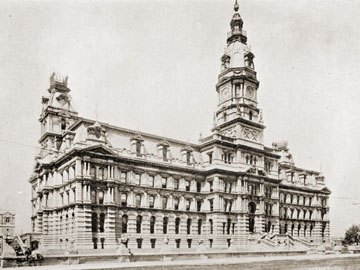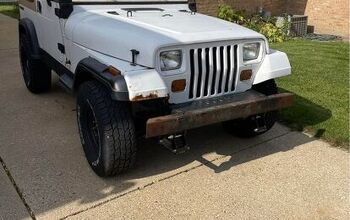Indiana: City Threatens $2500 Fines for Challenging Traffic Tickets
Motorists who receive minor parking or traffic tickets in Indianapolis, Indiana are being threatened with fines of up to $2500 if they attempt to take the ticket to court. A local attorney with the firm Roberts and Bishop was so outraged by what he saw in Marion County traffic court that he filed a class action suit yesterday seeking to have the practice banned as unconstitutional.
“The deck is stacked against the motorist,” lawyer Paul K. Ogden wrote. “To penalize that person for seeking justice seems wrong. I know it is done for the purpose of discouraging baseless challenges to tickets and clogging the docket, but in the process you are also penalizing people who have a legitimate defense and want a chance to present it to the court.”
The city made explicit the threat of additional fines for challenging parking tickets in a November 30 press release announcing a deal between Indianapolis and a private firm, T2 Systems, to hand over operations of a parking ticket court to increase municipal income.
“Using Six Sigma process improvement strategies, it is estimated that under this program the city may collect an additional $352,000 to $520,000 in parking citation revenue over the next 12 months,” the city press release stated. “If citations are not paid prior to their scheduled hearing, the city may request a fine of up to $2500 per citation. Upon receiving a judgment for an unpaid citation, individuals responsible could be subject to collections actions or having their vehicle registration suspended.”
In traffic court, Judge William Young has been making good on the threats by routinely siding with police officers in disputes and imposing fines of up to $500 on anyone who challenges a moving violation ticket, no matter how minor, and loses. Those who pay without going to court do not face this extra fine.
“Unfortunately what you have happen a lot of times is that judges aren’t particularly worried about whether what they’re doing may be violating the law as the odds of someone ever appealing a $400 traffic ticket is remote,” Ogden wrote. “I see it all the time. Trial judges flouting the law knowing they are unlikely to ever be challenged on an appeal because the litigants can’t afford it.”
Ogden is specifically representing three motorists affected by court policies. Toshinao Ishii received a ticket for driving 63 MPH in a 55 zone in February. Had he paid the ticket without challenge, the fine would have been $150. After Judge Young sided with the police officer in court, Ishii was fined $550. Motorist Matthew Stone was told by his doctors not to wear a seatbelt over his chest as it could damage his cardiac pacemaker. He received a $25 ticket for not wearing a seatbelt. After court officials threatened Stone with a $500 fine, he gave up his intention of challenging the citation. Adam Lenkowsky, who did not receive a ticket, attempted to attend a traffic court proceeding on September 23, 2009. He was barred from the court, despite the state constitutional requirement that court proceedings be open.
Ogden argues the court’s practices in the first two cases violate the excessive fines clause of the state constitution as well as the clause requiring that “all penalties shall be proportioned to the nature of the offense.”
[courtesy: thenewspaper.com]
More by The Newspaper
Latest Car Reviews
Read moreLatest Product Reviews
Read moreRecent Comments
- Honda1 Unions were needed back in the early days, not needed know. There are plenty of rules and regulations and government agencies that keep companies in line. It's just a money grad and nothing more. Fain is a punk!
- 1995 SC If the necessary number of employees vote to unionize then yes, they should be unionized. That's how it works.
- Sobhuza Trooper That Dave Thomas fella sounds like the kind of twit who is oh-so-quick to tell us how easy and fun the bus is for any and all of your personal transportation needs. The time to get to and from the bus stop is never a concern. The time waiting for the bus is never a concern. The time waiting for a connection (if there is one) is never a concern. The weather is never a concern. Whatever you might be carrying or intend to purchase is never a concern. Nope, Boo Cars! Yeah Buses! Buses rule!Needless to say, these twits don't actual take the damn bus.
- MaintenanceCosts Nobody here seems to acknowledge that there are multiple use cases for cars.Some people spend all their time driving all over the country and need every mile and minute of time savings. ICE cars are better for them right now.Some people only drive locally and fly when they travel. For them, there's probably a range number that works, and they don't really need more. For the uses for which we use our EV, that would be around 150 miles. The other thing about a low range requirement is it can make 120V charging viable. If you don't drive more than an average of about 40 miles/day, you can probably get enough electrons through a wall outlet. We spent over two years charging our Bolt only through 120V, while our house was getting rebuilt, and never had an issue.Those are extremes. There are all sorts of use cases in between, which probably represent the majority of drivers. For some users, what's needed is more range. But I think for most users, what's needed is better charging. Retrofit apartment garages like Tim's with 240V outlets at every spot. Install more L3 chargers in supermarket parking lots and alongside gas stations. Make chargers that work like Tesla Superchargers as ubiquitous as gas stations, and EV charging will not be an issue for most users.
- MaintenanceCosts I don't have an opinion on whether any one plant unionizing is the right answer, but the employees sure need to have the right to organize. Unions or the credible threat of unionization are the only thing, history has proven, that can keep employers honest. Without it, we've seen over and over, the employers have complete power over the workers and feel free to exploit the workers however they see fit. (And don't tell me "oh, the workers can just leave" - in an oligopolistic industry, working conditions quickly converge, and there's not another employer right around the corner.)































Comments
Join the conversation
Stop crying lol. Porschespeed hit it right on the head. These cops were hired no doubt with a "get tough on crime" mandate. Well guess what getting shot at sucks but ticketing you nice good people going to and from work is great business. No fuss no muss. I am currently in Indiana and the worst thing about this place is they have the speeds for the roads set from 10 to 15 miles to slow.